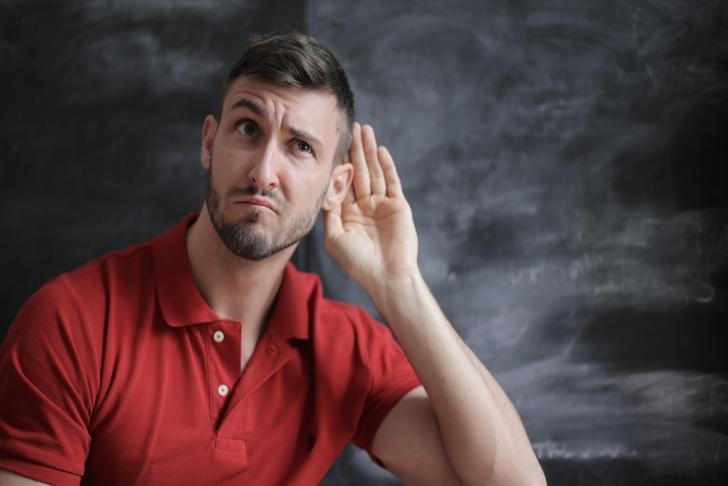10 vertigo symptoms
 Article Sources
Article SourcesMany people use the term vertigo to describe a feeling of lightheadedness, but these two terms aren’t interchangeable. Vertigo is more than feeling lightheaded. It’s a sensation of motion (usually spinning) while at rest, which can cause issues with hearing or balance.[[1]] Symptoms depend on the type of vertigo a person is experiencing. Inner ear problems cause peripheral vertigo, and although annoying, the symptoms are relatively benign. The symptoms of central vertigo are caused by issues within the brain and can be much more severe.[[2]] Although uncommon, it’s possible to have both vertigo types at once.[[3]]
Dizziness
Dizziness is the primary symptom of vertigo and is often caused by a sensation of spinning or otherwise moving while at rest. Some people claim it feels like the room is moving around them or that they can feel the Earth turning. Others feel they’re the ones moving while the room remains still. In peripheral vertigo, sensations of moving while at rest happen because the ear’s vestibular labyrinth or semicircular canals are damaged. These parts of your ear control balance.[[1]]

Advertisement
Loss of Balance
Loss of balance is a common vertigo symptom for both peripheral and central types. Balance loss is generally caused by a combination of other symptoms, including dizziness and issues focusing eyes. Loss of balance can be dangerous, leading to falls. It can also make tasks like driving, climbing stairs, and operating heavy machinery dangerous. Experts recommend sitting or lying down until a vertigo episode has ceased. After, activities should be resumed slowly.[[1]]

Advertisement
Problem Focusing The Eyes
Problems focusing the eyes are another vertigo symptom that often happens because of the dizziness experienced. However, in those with central vertigo, issues focusing the eyes can be a primary symptom, along with blurred or double vision. Usually, this symptom disappears once the vertigo episode has passed. In the meantime, closing the eyes and laying still can help alleviate this symptom. If this isn’t possible, avoiding bright lights, reading, and turning the head too quickly can also help.[[1]]

Advertisement
Hearing Loss
Hearing loss is a common symptom of peripheral vertigo. This is because issues with the ear itself are generally to blame.[[1]] Hearing loss may be acute (or short-term) or chronic (long-term). Often, the hearing returns to normal once other symptoms have also passed. However, in rare cases, hearing doesn’t return to normal.[[4]] Hearing loss may be experienced independently or can happen alongside tinnitus — a ringing sensation in the ears. Hearing loss may happen at the same time as ringing, or the ringing may occur before hearing is diminished.[[3]]

Advertisement
Ringing in The Ears
Ringing in the ears is called tinnitus, and it’s a noise that only the person experiencing it can hear. Unfortunately, this is a common problem experienced by approximately 50 million Americans.[[3]]Although vertigo is one possible cause of tinnitus, several other conditions could be to blame. Besides vertigo, ringing in the ears could be caused by Meniere’s disease, TMJ, or allergies. A blow to the head or exposure to loud noises, such as explosions, can also be to blame.[[3]]

Advertisement
Nausea and Vomiting
In vertigo, nausea is caused by the feeling of movement in much the same way people experiencing motion sickness feel sick to their stomachs.[[2]] Nausea may or may not be accompanied by vomiting. However, when it is, it’s important to replace lost fluids as soon as possible to avoid dehydration and the potential associated complications. A doctor may prescribe medications to help with nausea, but self-care methods are generally the most common management options. Self-care may include sitting still and avoiding sudden position changes.[[1]]

Advertisement
Difficulty Swallowing
Difficulty swallowing is known as dysphagia in the medical community. People with central vertigo are more likely to experience dysphagia, along with other concerning symptoms, such as facial paralysis and slurred speech.[[5]] Issues with the brain in central vertigo might be caused by conditions that present similar symptoms, making it challenging to differentiate between the two.[[1]] Examples include the lack of saliva experienced by people who have multiple sclerosis or partial paralysis following a stroke.

Advertisement
Slurred Speech
Slurred speech can be a symptom of central vertigo. However, slurred speech can also be caused by serious — sometimes life-threatening — health issues. For example, strokes, Lou Gehrig’s disease, brain tumors, and head injuries can cause slurred speech.[[6]] Since slurred speech can be caused by serious problems, it’s essential to seek immediate medical attention if the symptom occurs for the first time. If slurred speech occurs with confusion, loss of consciousness, or uncontrollable shaking, 911 should be called immediately.

Advertisement
Limb Weakness
Limb weakness is a vertigo symptom caused when brain issues are responsible. Weakness in the arms or legs may be accompanied by numbness or tingling. Although limb weakness can be a common symptom of central vertigo, people should still seek emergency medical attention when it occurs the first time.[[7]] Stroke, spinal stenosis, ALS, and other severe conditions can also cause limb weakness. A medical professional can determine whether vertigo is responsible for the symptom and advise on what to do should it happen again.[[4]]

Advertisement
General Feeling of Malaise
People experiencing vertigo symptoms often have a general feeling of malaise, which means they just don’t feel well. However, malaise may feel differently for everyone, and many describe it as feeling generally off. When feeling poorly, the best thing to do is lie down and rest in a cool, dark room. If that isn’t possible, sitting down and taking it easy for a few moments may help.[[1]]

Advertisement





